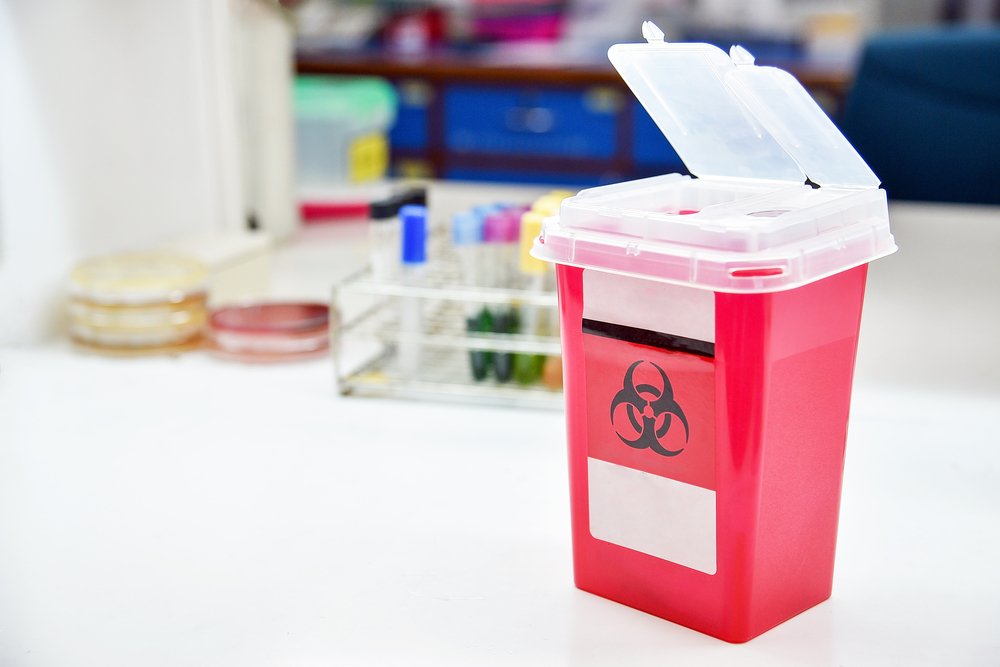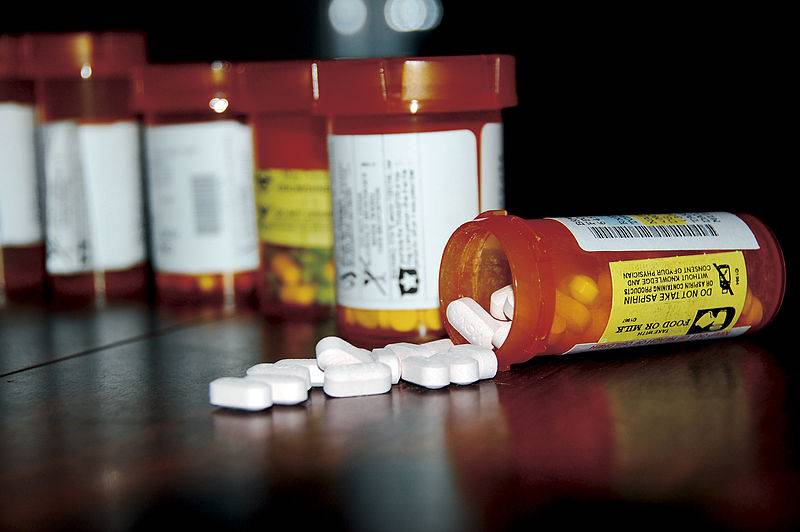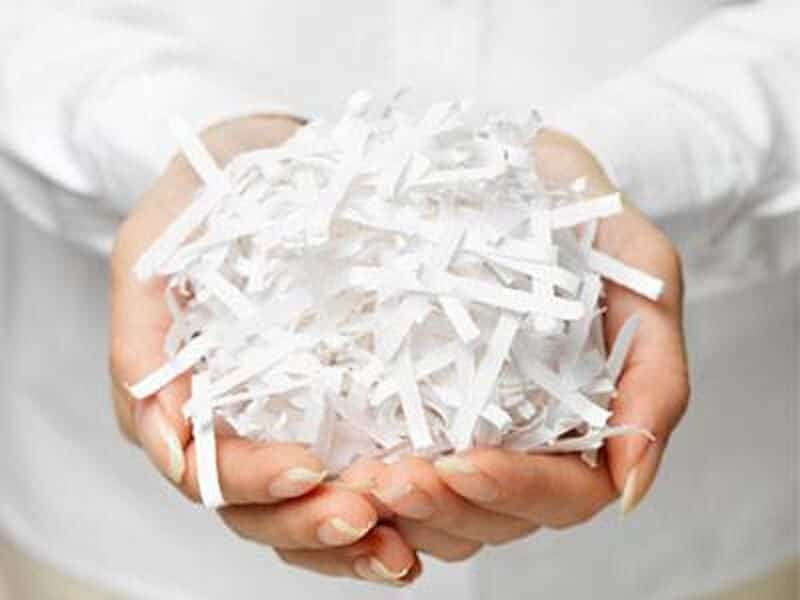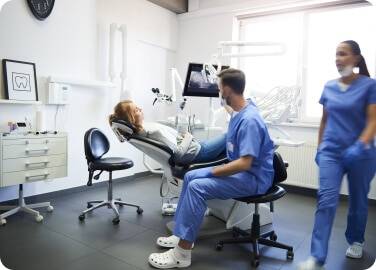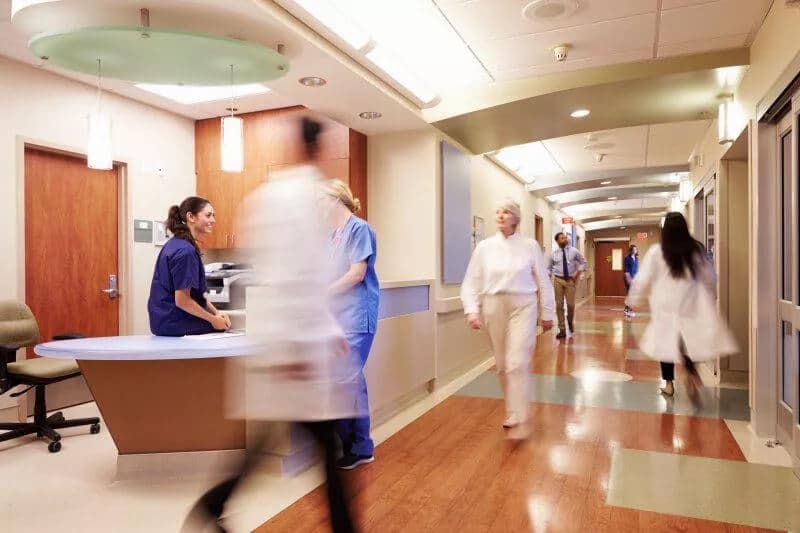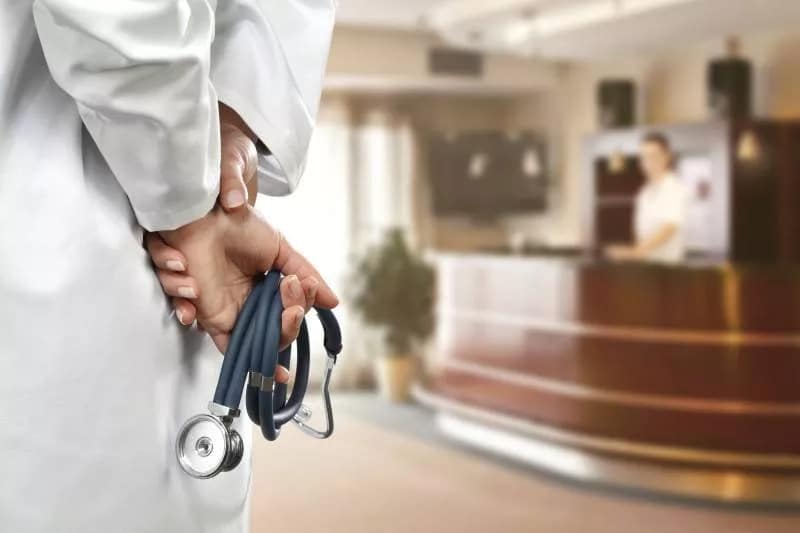Sharps & Medical Waste Disposal Dallas, TX
MedPro Disposal helps healthcare providers in Dallas, TX save an average of 30% on their medical waste disposal.
Dallas, Texas Medical Waste Disposal Services
MedPro Disposal offers medical waste disposal, infectious sharps waste management, OSHA compliance training including blood-borne pathogens training and certification, and HIPAA-compliance document shredding and data destruction services. MedPro Disposal keeps your medical practice safe and compliant so you can focus on what matters most, your patients.
Industries We Service
Take the MedPro Disposal challenge!
See how much MedPro Disposal can save your practice!
It’s Easy to Get Started With MedPro Disposal

Contact Us
Contact MedPro Disposal for a fast, free medical waste removal quote. We’ll get to know you, discuss your needs, and settle on a number. You may be surprised at how much you can save on medical waste disposal with MedPro Disposal.

Waste Pickup Date
Work with MedPro Disposal to determine your first pickup date. We’ll confirm your office hours and provide convenient options for medical waste and sharps pickup.

Compliance Survey
Complete a compliance survey. After we get to know your requirements, we’ll send you a survey to identify any areas that need to be brought up to OSHA standards.
All three steps occur at no additional cost to your practice. You’re on your way to safe, affordable, compliant medical waste removal!
Contact MedPro Disposal Today for a Fast, Free Quote!
Dallas, TX
Dallas is the ninth-largest city in the United States and the third-largest city in the state of Texas. The city’s prominence arose from its historical importance as a center for the oil and cotton industries, and its position along numerous railroad lines. The bulk of the city is in Dallas County, of which it is the county seat. However, sections of the city are located in Collin, Denton, Kaufman, and Rockwall counties.
| Practice Type | Zip Code | Projected Annual Savings |
|---|---|---|
| Dermatology | 75218 | $2,320 |
| Oncology | 75218 | $1,260 |
| Orthopedic | 75231 | $10,548 |
Find Out How Much You Can Save Instantly
Try our on-line savings calculator.
Medical Waste Disposal Dallas, Texas
Dallas is its own island in the state of Texas. Birthplace and home of everything from the corny dog to the Polyphonic Spree, the entrepreneurial spirit of Dallas never says no to a good idea. Dallas is also a unique Texan crossroads, where the spirits of the South and the Southwest meet as the hills and the big plains merge in ‘Big D’ country. Big, indeed – one quarter of all Texans live in the Dallas-Ft. Worth area.
Dallasites work hard and play harder. They will welcome you to town with a feisty and friendly ‘howdy’. You’ll find the Cowboys and Cheerleaders at AT&T Stadium (over in Arlington), but don’t look for too many ten-gallon hats downtown anymore – Dallas is now a galaxy class address for foodies, nightlife, and the arts, with a rambunctious neon skyline rivaled by few.
Dallas is not just a big city but a collection of diverse neighborhoods, a cultural mishmash moseying into the 21st century. Back in 1855, a collection of funky socialist artists started a collective community called ‘La Reunion’ near Dallas. The community experiment disbanded in 1860, but most of the artists moved into a Dallas neighborhood, Deep Ellum, putting down roots that still make it an artistic hipster hot spot to this day. After World War II, the city and the sleepy county towns around it began to boom, and our modern perception of Dallas baked and rose, with sports teams, Fortune 500 companies, a national tragedy, and an infamous Stetson hat worn by a good old fellow named J.R. And unlike its titular tv show, the story of Dallas has not all been a dream.
Recent drops in the price of oil have not much affected the Dallas economy, due to its diversified character. The city houses major national companies and social organizations, a telecommunications hub, a regional education center, and much more, exemplifying the resilient and hard-working nature of its people. Dallas, with the sixth largest GDP of any American city and fourth most populous U.S. metropolitan area, is also home to many hospitals and medical research labs within its city limits. Medical practitioners here never say no to safe health care and all types of medical services consistent with clinical knowledge, best practices and customer service.
One part of the medical community that few people give a lot of thought to is the medical waste industry. It’s not glamorous, but it’s vitally important to the success of any medical office, clinic, or hospital.
This commitment to quality in Dallas extends to its medical waste disposal companies, who operate as a vital backbone for every research clinic, office and hospital.
With dozens of medical waste management and biohazard waste disposal companies serving the Dallas and Ft. Worth areas, you have many choices, whether you are a large or small scale generator of medical and biohazard waste. You want your medical waste disposal company to be reliable, cost-effective and impeccably cognizant and compliant of all public safety health rules and regulations. You need your back covered so you can get your job done.
The Texas Commission on Environmental Quality (TCEQ) regulates and enforces biohazard waste disposal and medical waste disposal in Dallas TX. The rules cover the handling, treatment, and transport of these wastes from health-care-related facilities: waste of animals intentionally exposed to pathogens; bulk human blood and blood products; pathological waste; microbiological waste; and ‘sharps’. Familiarity and compliance with TCEQ rules is essential to protect public health and safety.
Bio Medical Waste Solutions
In 2014, the State of Texas and Dallas engaged on every level while responding to the Ebola virus crisis, after patients and caregivers tested positive for Ebola. The TCEQ took the lead in handling Ebola medical waste disposal, along with local medical and biohazard waste disposal companies.
The Ebola crisis highly raised public awareness about medical waste disposal. A single Ebola patient generated eight 55-gallon barrels of medical waste every day. Storage, transportation and disposal of pathogenic and biological hazards, during a crisis, or during standard day to day medical operations, is a serious business. Every year, hospitals produce almost 6 million tons of medical and biohazard waste that requires disposal, and that is in the United States alone.
According to the Environmental Protection Agency (EPA), medical waste is broadly defined as waste materials generated at health care facilities, such as hospitals, clinics, physicians’ offices, dental practices, blood banks, and veterinary hospitals/clinics, as well as medical research facilities and laboratories. To keep our communities safe and our earth clean, medical waste disposal companies regularly collect medical waste and biohazard waste, and then use chemical, biological, irradiative, thermal, and incineration methods to permanently dispose of it.
Not all health care waste is infectious or life-threatening. Around 80% of health care waste is non-infectious and can be disposed of like normal household waste, using local municipal waste disposal services. The other 20% of medical waste is infectious and disposed of in Dallas through standards regulated by the TCEQ, and using procedures outlined by the U.S. Occupational Safety and Health Organization (OHSA). Collection and segregation, storage and transportation, treatment and disposal: these are the key tasks provided by medical waste disposal companies throughout the world, and in Dallas, TX.
When you need to hire a medical waste disposal company in Dallas, whose duties require critical expertise and care, you will review their experience and training, and their broad and specific knowledge of OHSA and TCEQ regulations and standards, giving them the ability to advise you on best practices for safely gathering, storing and segregating medical and biohazard waste. You will rely on your service provider to be reliable and steady, for timely medical waste pickups and storage material supply deliveries. Your provider of medical waste disposal services will bill you a budget-friendly flat-rate appropriate to your hospital, lab or clinic. Most of all, you will have peace of mind, knowing your medical waste disposal company will professionally transport and dispose of your medical waste, protecting your patients, staff, venue, the community, and the city.
Consider MedPro as your Dallas partner for medical waste disposal – we understand what you need and how to make it happen. In the spirit of the Dallas people, who never say no to a good idea, the best Dallas medical waste disposal companies will always say yes to public health and safety, customer service, and the common good.
A Look into Dallas’ Healthcare: Sanitation, Waste Management, and Hospital Capacity
Thousands of biological threats exist on a daily basis. Insofar as the global innovation is concerned, humans have progressed towards being able to fight the simpler diseases. Antibiotics were invented and drastically lowered deaths from infection and sanitary practices have contributed to the same effect. But as the technological evolution takes place, biological threats that bring forth disease to society adapt as well. Disease not only poses a risk to lives, but the consequences of such are prevalent: it damages economies and global security as well.
This then calls into question: How prepared are we to face these uncertainties?
The metric of preparedness according to the Global Health Index has the following metrics to gauge the amount of confidence that we can place on our respective countries. Some of the important parts of the criteria are:
- Prevention: Prevention of the emergence or release of pathogens
- Health System: Sufficient and robust health system to treat the sick and protect health workers
- Risk Environment: Overall risk environment and country vulnerability to biological threats
The healthcare system is a vast ecosystem of sectors that all work together to ensure that patients are treated with curative, preventive, rehabilitative, and palliative care. Together with international, national, and local governments; the healthcare industry significantly ensures that improvement and confidence is pointed towards the right direction.
As the United States ranks first in the Global Health Index, it is worth looking at how its segments perform.


The State of Dallas, Texas
Dallas is one of the largest cities in the northern part of Texas, and even in the United States. It is home to several popular sporting teams such as: Dallas Cowboys (NFL) owned by Jerry Jones, Dallas Mavericks (NBA) that is Mark Cuban, and etc. One can be so familiar with Dallas, as it is also known for a couple of other things:
- The Texas State Fair is known to be the biggest state fair in the United States where people all over the state come to gather at Dallas’ Fair Park.
- John F. Kennedy’s assassination happened in Dallas, which consequently houses a number of museums that are related to the late President amongst its other important historical monuments.
Economy
Although Dallas has a diversified economy, it is best known for its real estate market’s resilience. The city has led the nation’s apartment construction and net leasing, which justifiably boosted its rent prices.
As of the last five years, the Dallas-Fort Worth metropolitan area brandishes a strong demand for housing, apartment, office leasing, industrial space, and etc. And this demand has only attracted more jobs to the city. Because of this, Dallas-Fort Worth Metroplex has the most concentrated number of Fortune 500 corporate headquarters in the United States.
Some of these companies are:
- AT&T
- Energy Transfer Equity
- American Airlines Group
- Jacobs Engineering
- Tenet Healthcare

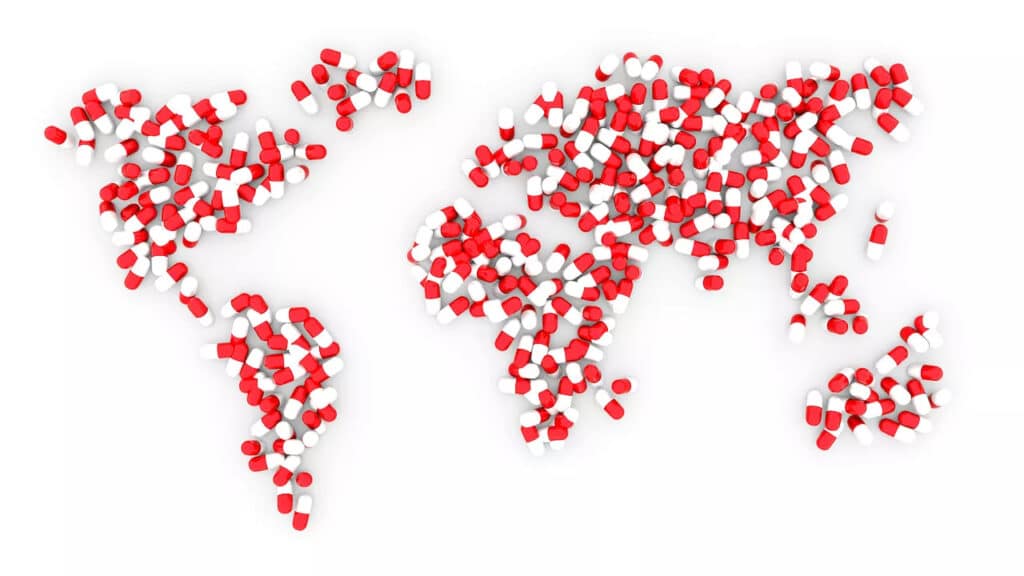
Healthcare
Hospital Capabilities
There are about 42 hospitals in Dallas’ medical district, which is the city that has the second highest number of hospitals within Texas – Houston being the first. A couple of known healthcare facilities are: Parkland Memorial Hospital, Children’s Medical Center, and William P. Clements Jr. University Hospital.
Collectively, the local government reports all of Dallas’ hospitals have about 14,384 hospital beds, and only 24% of which are currently available.
Furthermore, the city houses the largest medical school, in the University of Texas System: University of Texas Southwestern Medical Center. The university counts five Nobel laureates amongst its staff members.
All in all, the medical district directly supports an estimated 331,000 jobs in the region paying more than $36 billion in annual wages and salaries.
Sanitation
Hospitals are environments of recovery, however, its natural inclination towards attracting people who are sick also makes it a hotspot for the spread of especially virulent diseases. The influx of patients going in and out of the hospitals, governments and the medical community have created protocols to ensure that hospitals benefit patients instead of harming them.
Some of these protocols that can be observed on a daily basis are:
- Health practitioners wearing personal protective equipment (PPEs) such as gloves, masks, and safety glasses.
- The use of EPA-approved disinfectant instead of grocery-bought ones which kills 99% of germs.
- Mindfulness of the OSHA (Occupational Health and Safety Administration) blood spill procedure of cleaning up sharps/needle sticks by employees.
- The hiring of qualified biomedical waste disposal companies within Dallas that are compliant with OSHA and HIPAA guidelines.
Medical Waste and How Its Disposal Is Critical to Hospital Safety
An effective waste management system is possibly the most understated yet critical aspect of healthcare. Every day, thousands of wastes are generated by healthcare facilities such as: research centers/laboratories, hospitals, clinics, and even tattoo shops. All of them pose risks and require strict protocols for proper medical waste disposal.
These medical wastes include:
- Sharps (needles, syringes, lancets, infusion sets, Epi pens, insulin pens, scalpels, scissors, etc.)
- Liquid Waste (blood, bodily fluid, etc.)
- Solid Waste (Non-sharp items contaminated with any bodily fluids or biological material. For example: gloves, pipettes, towels, etc.)
Apart from the surmounting fees that come with improperly disposing of hazardous and toxic medical wastes, it could also pose a number of risks:
- Hepatitis A & B
- HIV
- Chemical burns
- Air Pollution
- Toxic exposure to pharmaceutical products
In the past, mere incineration that could have been individually carried out by healthcare facilities was enough when attempting to dispose of these biohazard wastes to lessen the active risk that each bacteria-filled item would pose. However, with recent concerns over the state of the environment, medical waste disposal and medical waste disposal companies have diversified their methods of disposing these wastes (e.g., thermal treatment, steam sterilization, incineration, and etc.).
As the world faces thousands of biological risks, industries and governments must attempt to solve these problems and mitigate risks that come alongside them. The healthcare system is tricky but placing care in its intricacies can save so many lives.
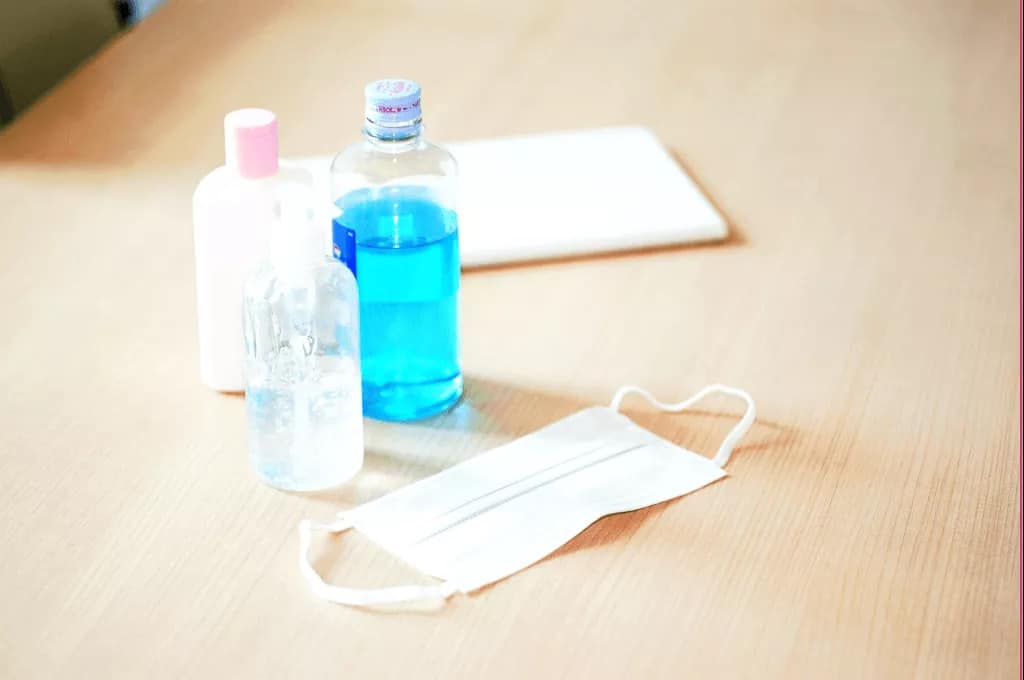
Dallas, TX Local Resources
Medical Society
Medical Society

140 E 12th St Dallas,, TX 75203

214-948-3622
Regional Chamber
Regional Chamber

500 North Akard Street., Suite 2600 Dallas, TX 75201

214-746-6600
Health and Human Services
Health and Human Services

2377 North Stemmons Freeway Dallas, TX 75207-2710

214-819-2000
Supply and Other Resources for Dallas
Police Department
Police Department

1400 S Lamar St Dallas, TX 75215

(214) 671-3001
Coffee House Cafe
Coffee House Cafe

6150 Frankford Rd Dallas, TX 75252

(972) 232-2333
Public Works
Public Works

320 E. Jefferson, Room 101 Dallas, TX 75203

(214) 948-4650
Dallas Little-Known Facts
Preceded by thousands of years of varying indigenous cultures, the Caddo people inhabited the Dallas area before Spanish colonists claimed the territory of Texas in the 18th century as a part of the Viceroyalty of New Spain. Later, France also claimed the area but never established much settlement.
Have questions about compliant biohazard waste and sharps waste disposal best practices?
Why Choose MedPro Disposal for Medical Waste & Sharps Container Disposal in Maine?
Methods of Springdale Medical Waste Disposal
On-site Medical Waste Collection
Package medical waste on-site, then leave it for collection by a medical waste disposal company.
Mailback Waste Disposal
Properly package and label the sharps, then send the biohazardous waste safely through the mail for disposal.
